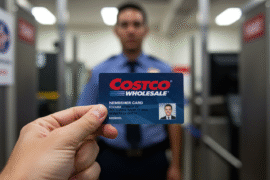This article may contain references to products or services from one or more of our advertisers or partners. We may receive compensation when you click on links to those products or services. Nonetheless, our opinions are our own.
Key Highlights
- Work-study programs help students who need financial support by offering part-time jobs to help cover educational expenses.
- The program is available for eligible undergraduate and graduate students.
- Income earned through work-study does not affect future financial aid eligibility.
- Work-study jobs provide valuable experience in students’ fields of study or benefit the community.
- To participate, students must complete the FAFSA, search for jobs, and secure employment with approved employers.
Introduction
Work-study is a federally funded program designed to assist students in covering educational costs through part-time employment. This program offers opportunities to gain work experience while earning money for school-related expenses. Administered through the FAFSA (Free Application for Federal Student Aid), eligibility is based on financial need. This article explores how work-study operates and guides students on how to apply.
Understanding Work Study
Work-study is distinct from traditional financial aid like loans or grants. It allows students to earn money by working part-time jobs, often on-campus or with nonprofit organizations. Unlike loans, money earned through work-study does not need to be repaid.
Work-study jobs benefit students by offering flexible schedules and relevant experience while supporting educational institutions and the community. These opportunities enhance students’ resumes and develop their professional skills.
The Basics of Work-Study Programs
Federal work-study allocates funds based on financial need, determined through the FAFSA. However, being awarded work-study does not guarantee a job. Students must actively search for positions that align with their schedules and skills.
Work-study jobs may include roles such as library assistants, research aides, or community outreach coordinators. Many positions align with students’ academic goals, providing practical experience in their fields of study.
Maintaining eligibility often requires meeting minimum GPA standards and adhering to institutional guidelines. Check with your college’s financial aid office for specific requirements.
Types of Work Study: Federal vs. Institutional
There are two main types of work-study programs:
- Federal Work-Study: Funded by the federal government and based on FAFSA eligibility.
- Institutional Work-Study: Funded directly by colleges or universities, with eligibility criteria set by the institution.
The table below highlights the key differences:
| Feature | Federal Work-Study | Institutional Work-Study |
|---|---|---|
| Funding Source | Federal government | College or university funds |
| Eligibility | FAFSA and financial need | Determined by the institution |
| Job Availability | Limited by federal allocation | Based on institutional budget |
Preparing for Work Study
Success in securing a work-study job requires preparation. Knowing deadlines, eligibility criteria, and application processes ensures a smooth experience.
What You Need to Get Started
- FAFSA Submission: Indicate interest in work-study when completing the FAFSA. Submit early to maximize your chances of receiving funds.
- Availability: Assess your class schedule to identify available work hours. This ensures a manageable balance between work and academics.
- Documents: Gather required documentation such as a Social Security card and proof of eligibility to work in the U.S.
Eligibility Criteria for Work Study Programs
Eligibility for work-study requires:
- Enrollment in an eligible institution (at least part-time).
- Demonstration of financial need via FAFSA.
- Maintenance of satisfactory academic progress, including GPA and course completion rates.
Each institution may have additional requirements, so consult your financial aid office for specific guidelines.
Step-by-Step Guide to Applying for Work Study
Step 1: Completing the FAFSA
The first step is completing the FAFSA accurately and on time. Indicate interest in work-study on the application. After submission, your school will review your financial need and determine your eligibility.
Step 2: Searching for Work-Study Positions
Once approved, search for available jobs through your school’s online job board or career services. Look for positions that match your skills and career goals.
Key considerations when applying:
- Job description details, including tasks, hours, and hourly pay.
- Roles that align with your academic and professional aspirations.
Step 3: Applying and Interviewing
Prepare a polished resume and cover letter tailored to the position. Practice common interview questions, emphasizing your skills, time management abilities, and enthusiasm for the role.
Maximizing Your Work Study Experience
Balancing Work and Study
Efficiently managing work-study responsibilities alongside academic commitments is crucial. Communicate with your supervisor about deadlines or schedule conflicts. Ensure work hours do not negatively affect your academic performance.
Tips for Success
- Be Reliable: Arrive on time, meet deadlines, and maintain professionalism.
- Build Relationships: Network with supervisors and coworkers to develop valuable connections.
- Track Hours and Earnings: Monitor your income to avoid exceeding your work-study limit.
Conclusion
Work-study programs offer students financial support while fostering valuable work experience. By understanding eligibility, application processes, and how to balance responsibilities, students can maximize the benefits of this opportunity. Work-study not only eases financial burdens but also provides a foundation for future career success.
Frequently Asked Questions
How do I know if I’m eligible for work-study?
Eligibility is determined by the financial aid office based on FAFSA. Check your award letter for work-study funds.
Can I choose where I want to work?
Yes, you can apply for positions listed by your school, but final hiring decisions are made by employers.
Does work-study income affect future financial aid?
No, work-study earnings do not count as income for FAFSA.
Can I work more than one work-study job?
Yes, but your total earnings cannot exceed your awarded work-study amount.
What if I don’t earn all my awarded work-study funds?
Unused funds are not disbursed, but this will not impact future eligibility.

Reviewed and edited by Albert Fang.
See a typo or want to suggest an edit/revision to the content? Use the contact us form to provide feedback.
At FangWallet, we value editorial integrity and open collaboration in curating quality content for readers to enjoy. Much appreciated for the assist.
Did you like our article and find it insightful? We encourage sharing the article link with family and friends to benefit as well - better yet, sharing on social media. Thank you for the support! 🍉
Article Title: Introduction for Beginners: The Concept of Work Study
https://fangwallet.com/2025/01/28/introduction-for-beginners-the-concept-of-work-study/The FangWallet Promise
FangWallet is an editorially independent resource - founded on breaking down challenging financial concepts for anyone to understand since 2014. While we adhere to editorial integrity, note that this post may contain references to products from our partners.
The FangWallet promise is always to have your best interest in mind and be transparent and honest about the financial picture.
Become an Insider

Subscribe to get a free daily budget planner printable to help get your money on track!
Make passive money the right way. No spam.
Editorial Disclaimer: The editorial content on this page is not provided by any of the companies mentioned. The opinions expressed here are the author's alone.
The content of this website is for informational purposes only and does not represent investment advice, or an offer or solicitation to buy or sell any security, investment, or product. Investors are encouraged to do their own due diligence, and, if necessary, consult professional advising before making any investment decisions. Investing involves a high degree of risk, and financial losses may occur including the potential loss of principal.
Source Citation References:
+ Inspo












































